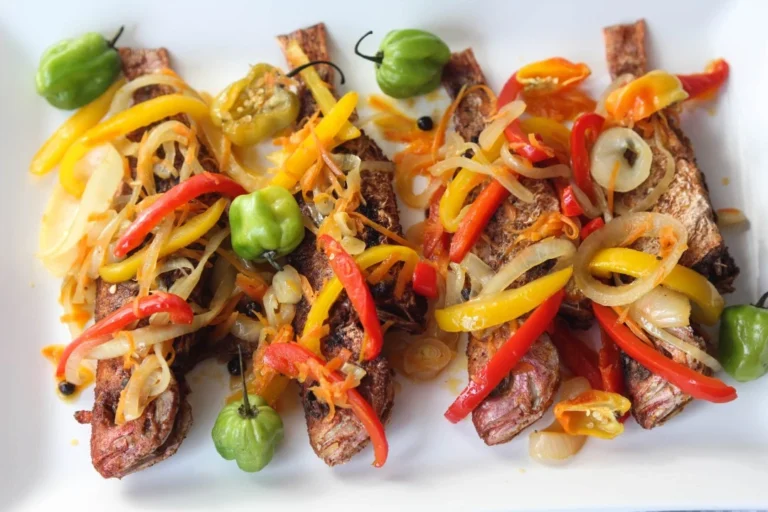Introduction: The fusion of Jamaican cuisine
Jamaican cuisine is a fusion of different cultures that have influenced the island nation over the centuries. The indigenous people of Jamaica used ingredients like cassava, yams, and seafood in their meals. However, the arrival of European explorers in the late 15th century brought new ingredients to the island. Later the slave trade brought thousands of Africans to the island, who brought their culinary traditions with them. The fusion of these different influences has resulted in the vibrant and flavorful cuisine that is Jamaican food today.
How African and Caribbean cuisine influenced Jamaican dishes
African and Caribbean cuisine played a significant role in shaping Jamaican cuisine. The African slaves brought with them their cooking techniques and their use of spices and herbs. The Caribbean islands also played an important role in influencing Jamaican cuisine, with the exchange of spices, fruits, and vegetables. The blending of these two culinary cultures resulted in the creation of unique Jamaican dishes.
African ingredients in Jamaican cuisine: yams, plantains, and more
African ingredients have played an important role in Jamaican cuisine. Yams, for example, are a staple ingredient in Jamaican cuisine and were brought to the island by African slaves. Plantains, another African staple, are also used extensively in Jamaican cooking. Other ingredients like okra, callaloo, and cassava were also brought by the Africans and are used extensively in Jamaican cooking.
The influence of Caribbean spices on Jamaican food
The Caribbean islands have also influenced Jamaican cuisine with their use of spices. Jamaican cuisine is known for its use of spices like allspice and scotch bonnet peppers. These spices were introduced to Jamaica through the Caribbean trade. Other Caribbean spices like cinnamon, nutmeg, and ginger are also used in Jamaican cooking, adding layers of flavor to the dishes.
The impact of slavery on Jamaican cuisine
The slave trade had a significant impact on Jamaican cuisine. The slaves brought with them their own culinary traditions, and these were blended with the cooking styles of the Europeans and the indigenous people of Jamaica. Slave owners provided their slaves with basic provisions like salted fish and cornmeal, which were used to create dishes like ackee and saltfish and cornmeal porridge. The impact of slavery is still evident in Jamaican cuisine today, with dishes like jerk chicken and curried goat, which were created using cooking techniques brought by the African slaves.
Conclusion: The rich cultural heritage of Jamaican cuisine
Jamaican cuisine is a reflection of the island’s rich cultural heritage. The blending of African, Caribbean, and European culinary traditions has resulted in a unique and flavorful cuisine that is enjoyed around the world. The use of ingredients like yams, plantains, and spices like allspice and scotch bonnet peppers are a testament to the influence of African and Caribbean cuisine on Jamaican food. The impact of slavery on Jamaican cuisine is also evident, with dishes like jerk chicken and curried goat reflecting the cooking techniques and ingredients brought by the African slaves. Jamaican cuisine is a celebration of the island’s diverse cultural heritage and is a true representation of its people and history.

